
As society's interest in food sustainability grows, soybeans as a plant-based food ingredient are attracting worldwide attention. At the same time, there is renewed interest in soy from the perspective of a "planetary health diet," which contributes to the balance of a sustainable food system on the planet and to people's health.
The U.S. soybean, which accounts for 70% of the soybeans used to make soy foods in Japan, has been working with Europe, where "sustainable procurement" is a business premise, to advance its approach to sustainability. This symposium will discuss the current status of the U.S. soybean, the sustainable future of soybeans, and new business opportunities for Japanese companies. We look forward to your participation.
<Program Contents>
・What is SSAP certification, a sustainability certification for U.S. soybeans?
・The spread of ethical consumption and sustainability certification
・Sustainable procurement requried in the global supply chain
・Planetary health diet and soybeans and their new possibilities・・・etc
Overview
- Title
-
USSEC Sustainability Symposium 2022
2022 [Soy Food and Sustainable Future]
- Day and Time
-
Thu. July 21
10:00~16:30 JST
- Venue
- Online symposium(Zoom/Live)
- Language
- Japanese/English (+ Simultaneous Interpretation)
- Organizer
- U.S. Soybean Export Council (USSEC)
- Co-organized
by - Nikkei BP Intelligence Group
- Sponsored
by - Embassy of the United States of America U.S. Department of Agriculture (USDA)
- In cooperation
with - Sustainable Japan
- Charge
- free of charge
プログラム
*Please note that the program is subject to change, including speakers and session times.
*Please note the dates and time are all Japan Standard Time
-
10:00~10:10
-
【Opening】

Ms. Rosalind (Roz) Leeck Executive Director for Market
Access and Strategy
Northeast Asia Regional Director
U.S. Soybean Export CouncilRosalind (Roz) Leeck is the Executive Director for Market Access and Strategy as well as Northeast Asia Regional Director at the U.S. Soybean Export Council. She is responsible for worldwide activities monitoring and addressing trade barriers and other market access issues that impact the U.S.’s ability to export soy and soy products and overseeing strategic program development and implementation. She is also the Regional Director for Northeast Asia responsible for Korea and Japan.
Prior to joining USSEC, Roz served as the Director of Grain Marketing at the Indiana Corn Marketing Council (ICMC) and Indiana Soybean Alliance (ISA). She has more than 10 years of experience in the grain trade field with previous positions at Archer Daniels Midland Co. and Demeter L.P. She has also worked for the Indiana State Department of Agriculture, serving in the Division of Soil Conservation.
Roz has been involved in a number of industry activities and is currently serving on the Management Council of the International Grain Trade Coalition and as a cleared advisor and vice chair for the USDA and USTR Agricultural Technical Advisory Committee for Trade in Grains, Feeds, Oilseeds, and Planting Seeds. She is also past chair of the Indiana Grain and Feed Association and Agribusiness Council of Indiana. Additionally, she serves on the Board of Trustees at Millikin University. Roz originally hails from southern Illinois where she remains a partner in her family’s grain and livestock farm. She received a Bachelor of Science Degree in Economics from Millikin University in Decatur, Illinois, a Master of Business Administration from Butler University in Indianapolis, Indiana and a Master of Science in Agricultural Economics from Purdue University in West Lafayette, Indiana.
Mr. Morgan Parkins Minister Counselor for Agricultural
Affairs Embassy of the United
States of America Tokyo, JapanMorgan Perkins assumed the post of Minister Counselor for Agricultural Affairs in the summer of 2020.
Mr. Perkins is a career Foreign Service Officer with USDA’s Foreign Agricultural Service, and prior to this assignment served as Director of USDA’s Agricultural Trade Office (ATO) network in Tokyo and Osaka. Before coming to Japan, Mr. Perkins served as Regional Agricultural Attaché based in the Dominican Republic; re-established USDA’s presence at the U.S. Embassy, Havana as the Department’s first representative to Cuba in six-decades; and has served in Afghanistan, Brazil and The Netherlands as well as several stints in Washington, DC. A native Marylander, Mr. Perkins studied at the University of Delaware and George Washington University, as well as serving as a Peace Corps volunteer in Honduras.
-
10:10~10:45
-
【Keynote Speech】
Transforming Soy Business in Japan and the world~Environment/Nutrition
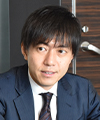
Mr. Kenji Fuma CEO Neural Inc.
Professor Shinshu University《Lecture Content》
While it is becoming clear that the issues of climate change, biodiversity and nutrition problem would make a significant influence in Japan’s food security, Soy business has also been transformed globally as well as in Japan. This session will provide the insight for soy-related corporations along with the overview of the latest regulation and business practices of international soy markets.Kenji Fuma founded a sustainability management and ESG investment consulting company in 2013 and the editor-in-chief of the news website Sustainable Japan.
He is a specially-appointed Professor at Shinshu Uniersity, and a member of the ESG-related expert committees of the Ministry of the Environment, the Ministry of Agriculture, Forestry and Fisheries, and the Ministry of Health, Labour and Welfare. He is also a board member of WaterAid Japan, a water and sanitation international NGO. He received Master degree in Sustainability from Harvard University and an MBA from Thunderbird School of Global Management He obtained B.A. in International Relations from the University of Tokyo.
-
10:45~11:20
-
【Special Lecture①】
Planetary Health for human and our earth
~ possibility of soybeans as food choices
Ms.Lisa Kirimura M.D./CEO, tenrai Inc.
《Lecture Content》
Nowadays,human activities have led to global environmental issues or social issues.”Planetary Health,” a new concept of health,is essential to achieve the SDGs goals. This lecture will introduce the Planetary Health Diet and the important role and potential of sustainable soybeans for Planetary Health.M.D. /Certified Industrial Physician / CEO of tenrai Inc. Advocating “Planetary Health” from a medical point of view based on comprehensive clinical experiences from preventive medicine to terminal care. Aiming for practical implementation of Planetary Health,creating a regional model in Kofu town, Tottori Prefecture. A latest book “Soil of gut and forests”(Kobun-sha)
-
11:20~11:45
-
【Special Lecture②】
Soyfoods Offer Benefits for Everyone

Mark Messina, PhD. Director of Nutrition Science and Research,
Soy Nutrition Institute Global《Lecture Content》
Soybeans and soy foods have played a major role in people's nutritional intake and health since ancient times. Soybeans have numerous advantages in terms of both food culture and nutrition, and their importance will continue to grow as a crop that can be used to meet future food crises. In addition, research has shown that isoflavones and other components unique to soybeans are beneficial in the prevention of breast cancer, skin health, and gestational diabetes. Soybeans will continue to bring many benefits to all humankind.Dr. Messina is the Director of Nutrition Science and Research for the Soy Nutrition Institute Global and an adjunct associate professor at Loma Linda University. For the past 32 years, Dr. Messina has devoted his time to the study of the health effects of soyfoods and soybean isoflavones. He writes extensively on these subjects, having published more than 100 articles and book chapters for health professionals, and has given more than 750 presentations to both consumer and professional groups in 55 countries. Dr. Messina is the chairperson of the editorial advisory board of, and writes a regular column for The Soy Connection, a quarterly newsletter that reaches over 250,000 dietitians and other health professionals. He has also organized and chaired nine international symposia on the role of soy in preventing and treating chronic disease and has organized soy meetings in China, India, Brazil and Italy.
-
11:45~12:10
-
【Company lecture①】
Moving Plant Forward! Japanese Food-Tech Venture “Next Meats’s” Business Strategy
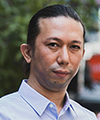
Mr. Sasaki Hideyuki CEO, Next Meats Co., Ltd
《Lecture Content》
Demand for "plant-based meat" is increasing due to the growing awareness of climate change, food crisis,
and health issues.
“Next Meats" is a Japanese food-tech company that was founded in June 2020 and is rapidly expanding ts business both domestically and internationally in order to combat climate change issues.
We asked Hideyuki Sasaki, the CEO of Next Meats, how the company has developed so far and what he envisions for the future of the alternative meat market.Born in 1980. with his early entrepreneurial experience, he turned his attention overseas and has been involved in various businesses in Shenzhen, China for 12 years. In June 2020, he co-founded Next Meats with Shirai, the current chairman of the board, utilizing his experience in accelerator programs for large companies and media management.
He is working day and night on plant-based meat business to combat climate change, which is getting worse by the minute.
-
12:10~12:35
-
【Company lecture②】
Responding to the expansion of the soybean meat market and sustainable procurement (marineproducts certification,etc.)
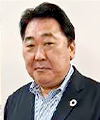
Mr. Koichi Inoue GENERAL MANEGER MARCHE DEPARTMENT
Ito-Yokado ㏇.Ltd《Lecture Content》
Ito-Yokado is the first supermarket in Japan to introduce the "mel certification," a seafood eco-label, and is actively promoting sustainable procurement. Ito-Yokado is also eager to sell soybean meat as a plant-based food. This lecture introduces Ito-Yokado's sustainable initiatives.As manager of the Marche Department, one of Ito-Yokado's three food business divisions, he supervised Fruits and vegetables, fresh fish, meat department He also served as Chief Buyer of the Daily Foods Department and Senior Merchandiser of the Fresh Fish Department, and promoted the introduction of MEL certification.
-
12:35~13:00
-
Break Time
-
13:00~13:35
-
【Special Lecture③】
Sustainable procurement and certification, the current ethical consumption

Ms. Manami Yamaguchi Representative Director
JAPAN SUSTAINABLE LABELS ASSOCIATION《Lecture Content》
Companies are required to practice sustainable procurement, and sustainable products can lead to ethical consumption.
One of the options that we can do is certification, but would consumers choose the products because of the certification label?
We consider how to let sustainable procurement, certification and ethical consumption be established in Japan.Manami is providing services related to sustainable and responsible resources, SDGs, CSR, international certifications, ethical consumption and organic products through consulting, advising, and providing educational training.
Manami also a board member of environmental and organic organizations, including as representative director of Japan Sustainable Labels Association, vice president of the Japan Ethical Initiative.
-
13:35~14:10
-
【Special Lecture④】
SSAP Certification and the Efforts of U.S. Soybean Farmers

Ms. Rosalind (Roz) Leeck Executive Director for Market
Access and Strategy
Northeast Asia Regional Director
U.S. Soybean Export Council《Lecture Content》
In response to the growing demand for sustainable U.S. soybean supply, the USSEC established the SSAP sustainable certification for U.S. soybeans in 2013. Currently, 95% of the U.S. soybeans imported into Japan are now certified as SSAP sustainable, and many products with the certification mark are now available in the market. This presentation will introduce how U.S. soybeans are produced under SSAP certification and how they reach Japanese consumers.Rosalind (Roz) Leeck is the Executive Director for Market Access and Strategy as well as Northeast Asia Regional Director at the U.S. Soybean Export Council. She is responsible for worldwide activities monitoring and addressing trade barriers and other market access issues that impact the U.S.’s ability to export soy and soy products and overseeing strategic program development and implementation. She is also the Regional Director for Northeast Asia responsible for Korea and Japan.
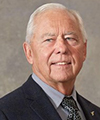
Mr. Charles W. (Bill) Bayliss
Dierctor, UNITED SOYBEAN BOARD/
Ohio Soybean FarmerBill Bayliss is a first-generation farmer from West Mansfield, Ohio, where he grows soybeans,
corn and wheat. In the coming years, he plans to pass his farm on to his daughter, Jana, and her husband, David,
and works to prepare them for the future of agriculture. He is involved with the Ohio Corn and Wheat Growers Association, Farm Bureau, and the Ohio Sheep Improvement Association,
as well as the Lions Club. Bill has also served as director of the Soy Aquaculture Alliance.
He views public perception, trade avenues and supply levels as three challenges facing the soybean industry — and sees opportunity in providing a stable supply for renewable products made with U.S. soy.
USB Appointments:
●Demand Action Team
●Meal Demand Target Area Work Group
●Soy Aquaculture Alliance (Alternate)
-
14:10~14:35
-
【Company lecture③】
Sustainable procurement and soybeans for Fuji Oil
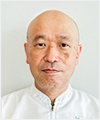
Mr. Tatsuo Ohashi General Manager, Procurement Department, Fuji Oil Co., Ltd
《Lecture Content》
More social requirements for sustainable issues for corporate entity are seen in recent years.
Fuji Oil’s soy protein business dates back to1960’s.
We overview the progress and the future of sustainable procurement which has supported the Fuji’s soy protein business.Joined Fuji Oil since 1983. Engaged in exports, imports, world businesses and oils and fats business planning. General Manager, raw materials procurement (2018) and procurement (2021)
-
14:35~15:00
-
【Company lecture④】
Japanese traditional food “Tofu” ‘s Counterattack
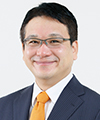
Mr. Junji Torigoe CEO ,Sagamiya Foods Co,Ltd.
《Lecture Content》
Japanese traditonal craftsmanship "making Tofu" has an unlimited strength. By gathering Tofu's craftsmanship that is based in all regions in Japan, we believe we can challenge ourselves in various tasks. Like "Zaku Tofu","Hitorinabe Series",”BEYOND TOFU”,"Odashigashimita Kizamiage", these smash hit products that have created new values to Tofu, were originated by those beliefs.Born in 1973. After graduating Waseda University, he joined Dairy company and then joined Sagamiya Foods in 2002. Being President and CEO of the company since 2007. By constantly releasing new products like "Zaku Tofu" and "BEYOND TOFU" which was based on ideas not been caught by Tofu industry's common sense, he has been expanding Tofu's world. Also, Sagamiya is conducting Relief Merger of reconstruction support by answering SOS calls from Tofu manufaturers that is facing difficulties in continuing their business. In addition, Sagamiya is engaging in reproduction of Tofu industry and developing and inheritating Tofu culture in every region in Japan.
-
15:00~15:25
-
【Company lecture⑤】
“TOFU BAR” brought new perspective to the traditional
tofu market! And Asahico focuses on developing further
new products for a sustainable future!
Ms. Mio Ikeda Plant Forward Division Director,
Marketing Manager, Asahico Co., Ltd《Lecture Content》
Starting with the "TOFU BAR" which has become a huge hit by reconsidering traditional tofu as a "vegetable protein", we will introduce future business prospects such as the “TOFFU PROTEIN” which you can enjoy a full-course meal of vegetable protein by making use of the soybean and tofu processing technology that we have cultivated so far.
We will also talk about our commitment to raw materials for a sustainable future.Joined Asahiko in 2018 and works on the development of new future-oriented tofu that is not only good for the body but also for the global environment and is suitable for the future.
The "TOFU BAR" launced in 2020 has shipped more than 17 million units in total, and vegetable meat and rice made from tofu and soybeans have been introduced in many media as evolutionary tofu and have become a hot topic.
-
15:30~16:20
-
【Panel talk】
Revolutionizing TOFU! The Sustainability Challenge
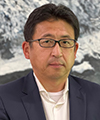
《Panelist》
Mr. Kenji Miyoshi Chairman
Japan Tofu AssociationIn 1990, at the age of 25, he joined his family's tofu business, Miyoshi Shokuhin Kogyo, and became the representative director in 2006. He also served as an auditor and later as a director of Asahi Shokuhin Kogyo (now Asahiko Corporation, headquartered in Saitama Prefecture) from 2005. He has been a member of the board of directors of the Japan Tofu Association since 2013, and after serving as vice chairman, he will serve as chairman from 2019. His hobbies include golf and drinking. His family consists of his parents, wife, three children, and two cats.

《Panelist》
Mr. Tatsuo Ohashi General Manager, Procurement Department, Fuji Oil Co., Ltd

《Panelist》
Mr. Junichi Torigoe Predsident of Sagamiya Foods Co,Ltd.

《Panelist》
Ms. Mio Ikeda Plant Forward Division Director,
Marketing Manager, Asahico Co., Ltd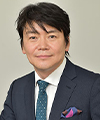
《Moderator》
Shogo Fujii Chairman Researcher
Nikkei BP Intelligence Group
